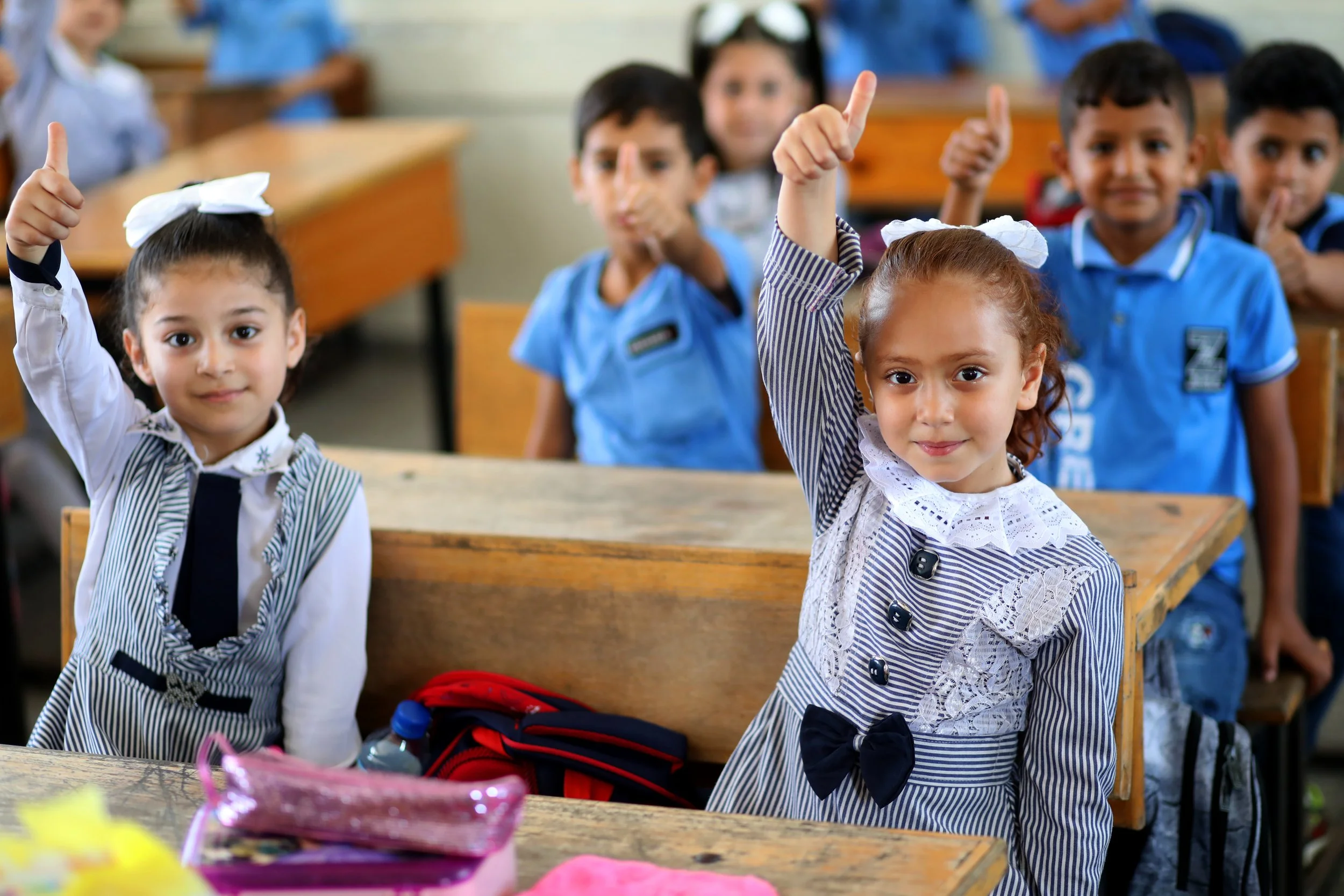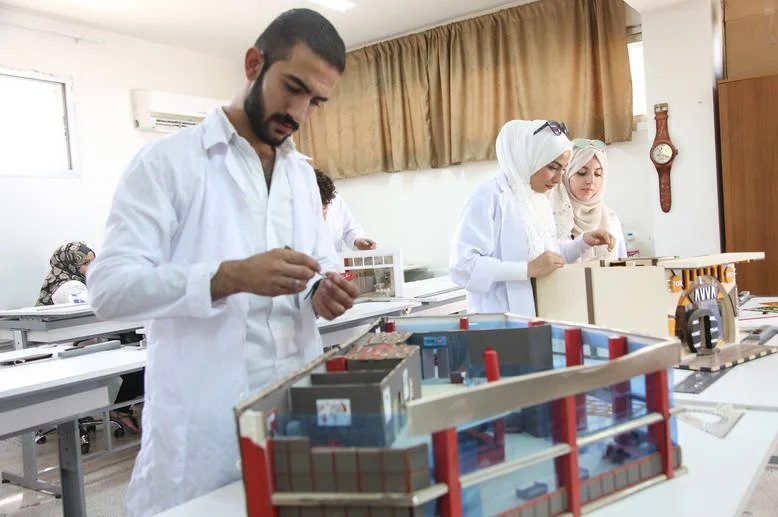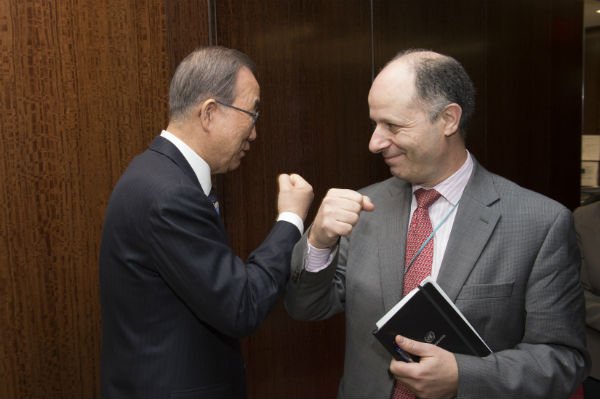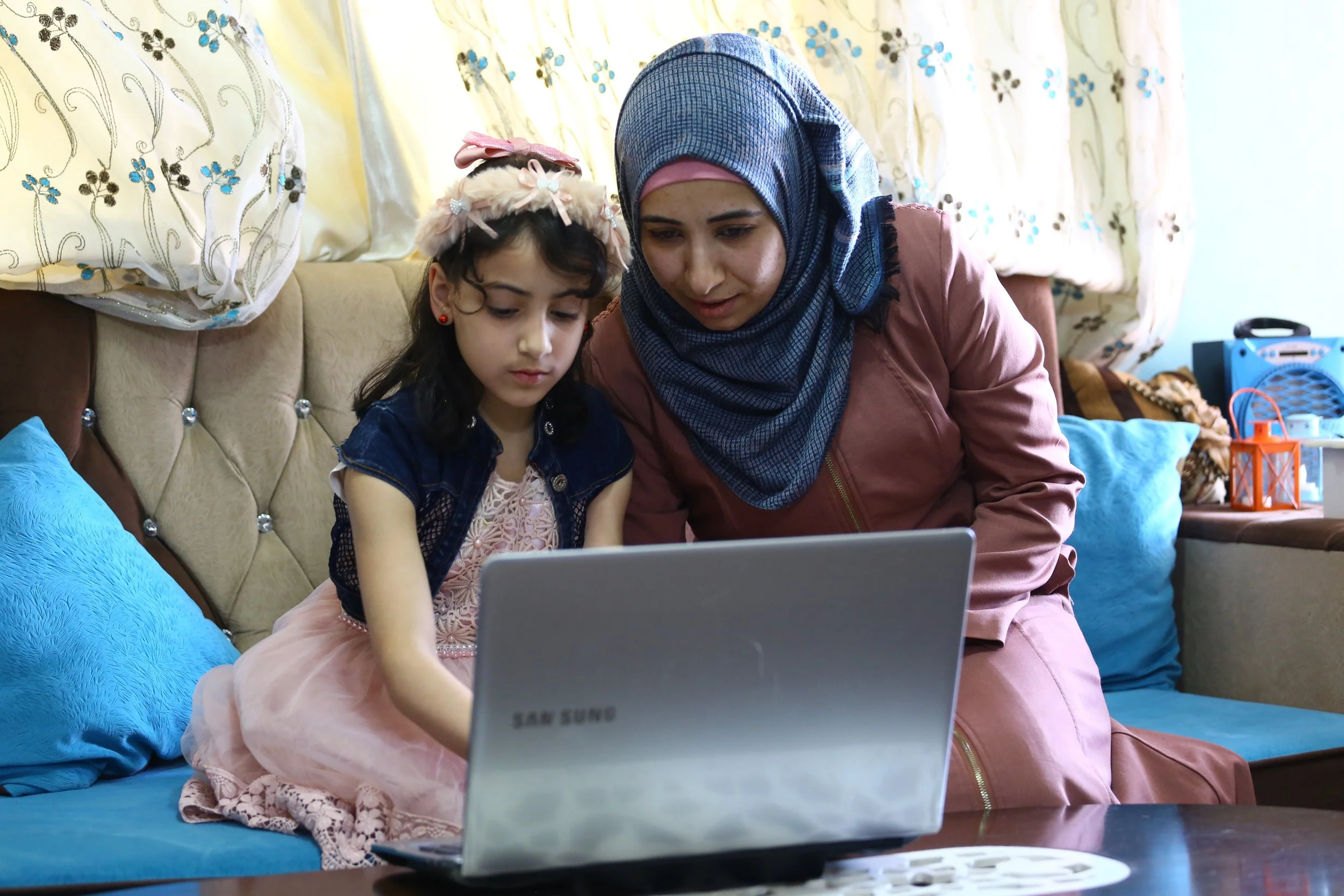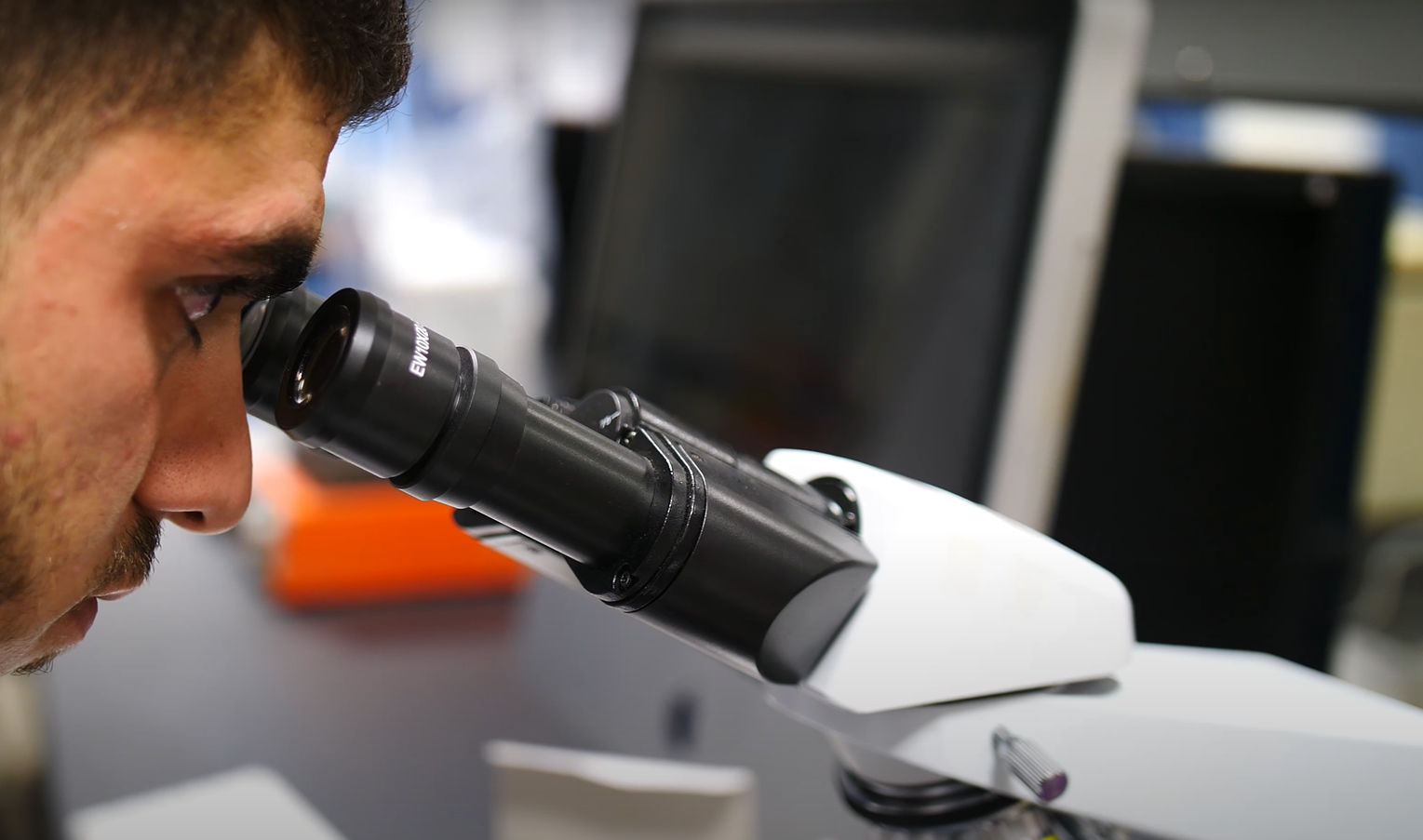
Education + Training
you can help Palestine refugees stay in school and earn degrees
Education is UNRWA’s largest program. The Agency runs over 700 schools, vocational centers, and teacher training centers in its five fields of operation: Jordan, Syria, Lebanon, the occupied West Bank (including East Jerusalem), and the Gaza Strip.
You can expand educational opportunities for refugees in the Middle East through a number of programs, including:
Primary Education
UNRWA runs over 700 schools for Palestine refugees
UNRWA operates 700+ elementary and preparatory schools in its five fields of operation, including eight secondary schools in Lebanon, providing free basic education for more than half a million Palestine refugee children. To put it in the US context, UNRWA’s school system would represent the third-largest school system after New York and Los Angeles.
UNRWA teachers are refugees themselves
Most UNRWA teachers are refugees themselves, locally recruited from the Palestine refugee population.
UNRWA students outperform their national counterparts by one year of learning
A recent World Bank report says students attending UNRWA schools in the West Bank, Gaza Strip, and Jordan are achieving higher-than-average results in international assessments despite their challenging circumstances.
According to a World Bank education expert: “UNRWA students perform better than their peers in public schools despite their socio-economic disadvantages and parents’ education, which seems to be compensated by students’ self-confidence, parental support, and involvement in school activities.”
UNRWA teaches human rights and tolerance
School children in UNRWA schools follow the host authorities’ curricula and textbooks. UNRWA supplements these with its own materials on human rights.
Did you attend an UNRWA school or receive an UNRWA scholarhip for university? We want to hear your story!
training
In addition to primary education, UNRWA provides training to young refugees
The UNRWA Technical and Vocational Education and Training Programme (TVET) provides practical training to young Palestine refugees, equipping them with relevant skills and expertise for Middle Eastern labor markets.
The Agency runs eight vocational and technical training centers with a capacity of about 7,500 trainees. Three types of courses are offered:
Semi-professional courses of a two-year duration (technician level).
Trade courses (vocational) of a one-year (skilled laborer level) and two-year (craftsman level) duration.
Short-term courses.
Specializations include: mechanics, building construction, plumbing, refrigeration, electrical installations, auto electrical and electronics, communication systems, mobile maintenance, hairdressing and fashion design, graphic design, accounting, assistant pharmacist, nursing, medical records, and physiotherapy.
These courses are organized in response to local needs. Most trainees succeed in securing employment.
University Scholarships for Palestine refugees
UNRWA provides access to university education
UNRWA’s scholarship program provides access to university education for young Palestine refugees who excel academically but would otherwise be unable to afford tertiary education.
Access to higher education is limited for many Palestine refugees because of their difficult socio-economic situation. This limits their employment opportunities and their chance to improve their living conditions.
The Agency’s university scholarships contribute toward the development of a highly-skilled workforce. Past university scholarship holders have gone on to hold key positions in UNRWA, host countries, and Arab Gulf states, contributing to the social and economic development of the region.
Scholarships are awarded for study in a wide range of fields across the sciences, social sciences, and liberal arts. Courses lasting four to six years, such as engineering, and medicine are supported.
Awards are given according to academic merit and socioeconomic status. They are renewed upon completion of each year until students obtain their first university degree.
UNRWA School Renovations
UNRWA schools have been a safe space for learning and growth since their establishment in 1949
From tents in the sand, serving Palestine refugees displaced from their homes to the modern brick and mortar buildings that stand apart from their camp surroundings with their white and blue accents, UNRWA schools have been filled with tens of thousands of Palestine refugee students eager to learn and secure their inalienable right to education.
To maintain a learning environment that is safe, stable, and supportive, regular renovations are necessary to improve classroom conditions, which, in some fields host double and triple shifts, and a times serve as emergency shelters. Many UNRWA schools have been directly impacted by military assaults and violence, either causing physical damage to the schools or significantly disrupting education services.
Donors have supported projects as large as the complete rebuilding of schools and as small as refurbishing and equipping UNRWA school computer labs. Some opportunities are available for folks interested in financing school and classroom renovations, so we ask that you get in touch if this aligns with your interests.
Education Technology
Innovation is a hallmark of UNRWA services, including education
In 2021, UNRWA launched a new centralized digital education platform designed to improve education access for more than half a million Palestine refugee students in 711 schools across the Middle East. In emergency situations -- such as the COVID-19 pandemic or military assaults -- refugee children are often unable to physically access their regular schools, risking interruption of their education.
In order to ensure learning continuity, the Digital Learning Platform (DLP) was developed to provide UNRWA students (and their parents) with access to age-appropriate, relevant, and safe self-learning material that is in line with UN values and humanitarian principles.
Please get in touch if you’re interested to learn more or advance these tech efforts.

